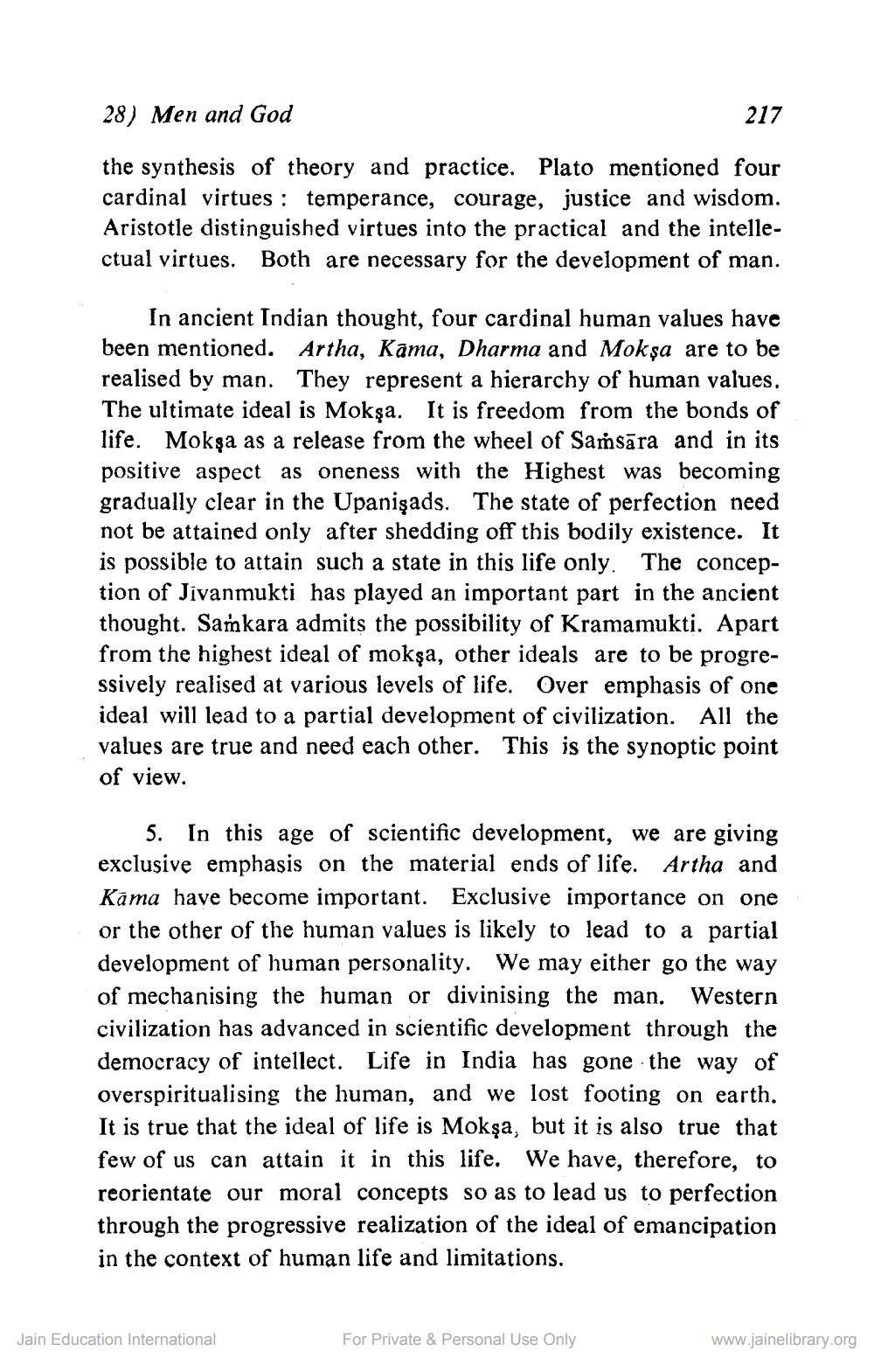________________
28) Men and God
217
the synthesis of theory and practice. Plato mentioned four cardinal virtues : temperance, courage, justice and wisdom. Aristotle distinguished virtues into the practical and the intellectual virtues. Both are necessary for the development of man.
In ancient Indian thought, four cardinal human values have been mentioned. Artha, Kama, Dharma and Moksa are to be realised by man. They represent a hierarchy of human values. The ultimate ideal is Mokşa. It is freedom from the bonds of life. Mokşa as a release from the wheel of Saṁsāra and in its positive aspect as oneness with the Highest was becoming gradually clear in the Upanişads. The state of perfection need not be attained only after shedding off this bodily existence. It is possible to attain such a state in this life only. The conception of Jivanmukti has played an important part in the ancient thought. Sankara admits the possibility of Kramamukti. Apart from the highest ideal of mokşa, other ideals are to be progressively realised at various levels of life. Over emphasis of one ideal will lead to a partial development of civilization. All the values are true and need each other. This is the synoptic point of view.
5. In this age of scientific development, we are giving exclusive emphasis on the material ends of life. Artha and Kama have become important. Exclusive importance on one or the other of the human values is likely to lead to a partial development of human personality. We may either go the way of mechanising the human or divinising the man. Western civilization has advanced in scientific development through the democracy of intellect. Life in India has gone the way of overspiritualising the human, and we lost footing on earth. It is true that the ideal of life is Mokşa, but it is also true that few of us can attain it in this life. We have, therefore, to reorientate our moral concepts so as to lead us to perfection through the progressive realization of the ideal of emancipation in the context of human life and limitations.
Jain Education International
For Private & Personal Use Only
www.jainelibrary.org




